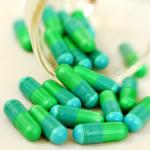
One day the capsule you swallow to treat a disease may not deliver medicine but instead may deliver DNA and other biological machinery--essentially a factory that creates medicine on demand.
Researchers are making advances on the technology that could make this a reality, reports ScienceDaily. The original research, from a team of scientists from Harvard, Massachusetts Institute of Technology, and University of British Columbia, appeared recently in the journal Nano Letters.
The researchers describe their technology as "nanofactories" that consist of "lipid vesicles filled with the cellular machinery responsible for transcription and translation, including amino acids, ribosomes, and DNA caged with a photolabile protecting group." According to the report, the nanofactories are triggered using a laser light, and the technology has already worked when injected into mice.
Because the nanoscale production units can be switched on when needed, the technology could present valuable alternative treatments to various diseases. It could, for example, allow doctors to administer medicines that cannot be taken orally or are toxic and would harm other parts of the body, according to the report. Currently, scientists have conducted related experiments using live bacteria that produce proteins at disease sites, but the new nanotechnology proposes a modular system that would be easier to modify.
See the full report here and original researcher here.


